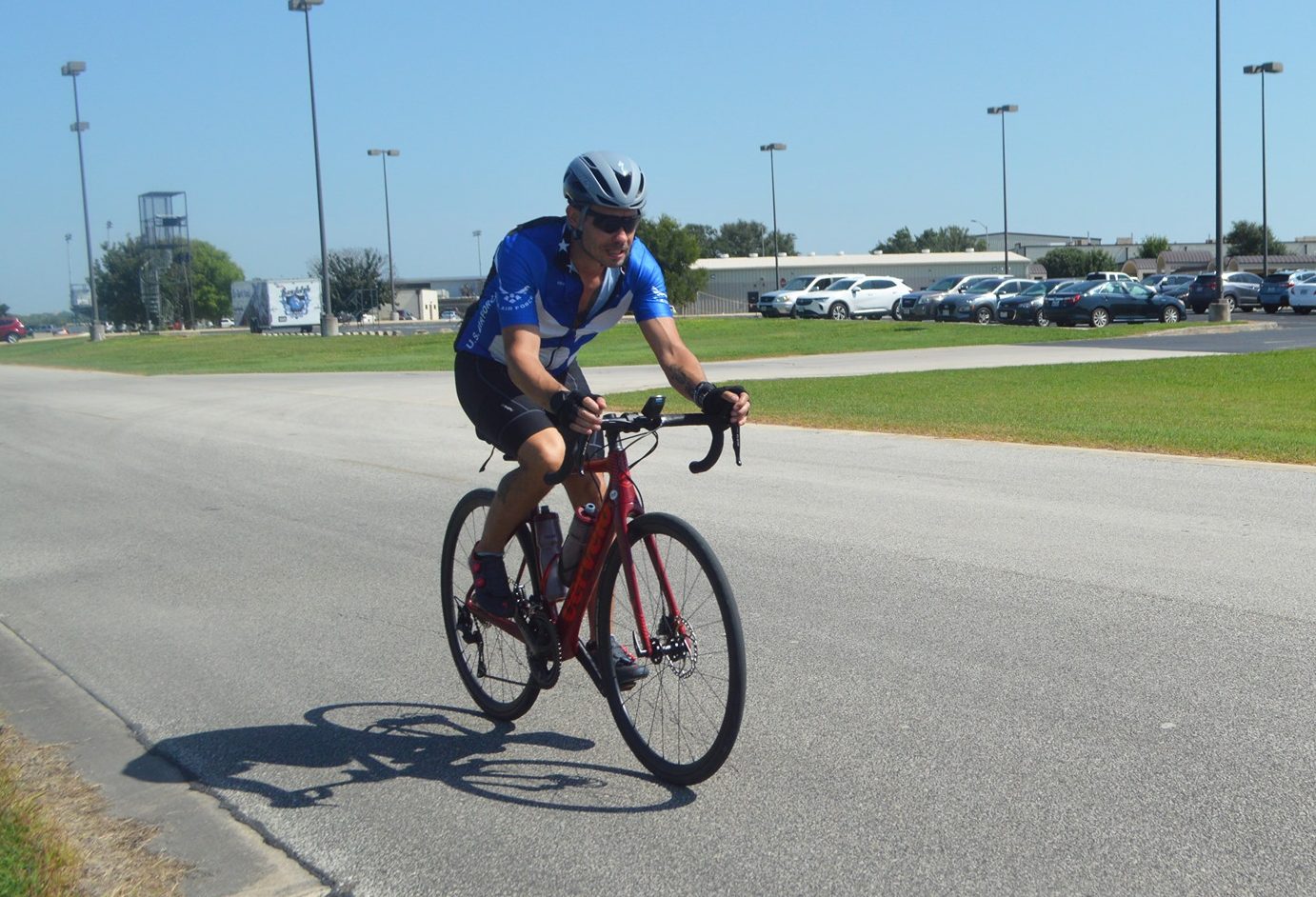Wounded Warrior Spotlight: Teamwork in Trauma
October 1, 2024 | By Joe Peel
Retired Master Sgt. Chris Jachimiec’s positive attitude belies a painful past. An otherwise highly successful career in the Air Force was marred towards the end by a series of traumatic life events that eventually became more than he—or anyone realistically—could bear alone. As a young Airman early in his career, his mother’s sudden passing while he was on deployment overseas and his grandfather’s passing shortly after marked a low point in his personal life up until that time. But the care he received from his First Sergeant not only gave him the strength to persevere, but also showed him the kind of person and leader he wanted to become.
Starting in July 2017 and in the span of just nine months, Jachimiec faced a rapid succession of further losses and no time to properly grieve. On Independence Day, he first learned about the death of a close friend and fellow Airman. Shortly after, in another defining moment of his life, he recalls pulling his car over after receiving an urgent message from his stepmother. When he called her back, he learned the devastating news that his brother had died by suicide.
Amidst these traumas, his unit was responsible for responding to back-to-back hurricanes and the mass shooting in Las Vegas. Now a First Sergeant himself, Jachimiec took his duty to care seriously. Without even having enough time to process his own losses, he stayed focused on caring for others in their time of need to the detriment of his own mental health. His traumas, however, only continued to compound.
Chris soon learned that another close friend and colleague of his died by suicide. In what would be his breaking point, on the very day of this friend’s funeral, he learned that yet another colleague had just died by suicide too. Reliving his story, he pondered, “What more can one human being go through?”
Without the necessary time to grieve so many losses, he found himself spiraling. “I coped with work and alcohol. I couldn’t stop. I felt like the job was the distraction from me processing my emotions and when I got home, the alcohol was what fueled me from processing all the trauma and grief that was bubbling up.”
Jachimiec is very open about his experiences because he focuses on the eventual positive outcome. “All of that is just part of the story. But it’s like, what’s the good that came of that? That’s where my mind goes.”
In early 2019 he enrolled in the Wounded Warrior program as a result of his post-traumatic stress disorder (PTSD) where met with other wounded Airmen who would become the basis of his recovery. Being able to share his ordeals with sympathetic ears finally provided him the outlet he needed to begin working through his trauma. “Those were the better therapists than actual mental health therapists, that peer-to-peer support.”
The program also rekindled a passion for sports and gave him something to drive towards. He resumed cycling and later found out about M2M through his involvement in AFW2. He sees in cycling the same beauty in teamwork that also got him through his recovery, emphasizing that Airmen do not need to go through their recovery alone. A naturally eloquent speaker, he sums his advice to other wounded warriors up in just seven words: “A pain shared is a pain halved.”
Now retired due to these events outside of his control, Jachimiec’s Air Force career didn’t end the way he would have liked, but he stays connected to the Air Force through AFA and events like M2M. He also uses opportunities like M2M to tell his story, give those around him an extra push to succeed, and ultimately, to just spread joy. “You never know who you’re going to inspire and make that day better for somebody,” he said.
